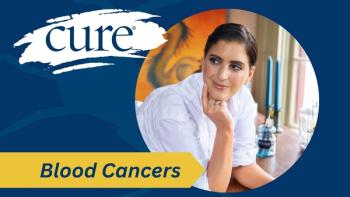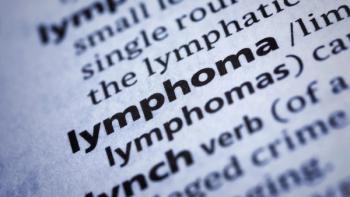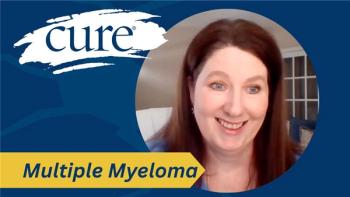
Finding Forgiveness For Cancer-Related Missteps
Key Takeaways
- A cancer diagnosis prompted the author to reassess commitments, leading to tension with a friend who felt abandoned.
- Miscommunication and unresolved feelings resulted in public shaming through a blog post, exacerbating the conflict.
Two wrongs don't make a right.
When I was first diagnosed with testicular cancer in fall 2016, I decided to step back from my over commitments to various different projects I was involved in. I followed this decision up by launching my testicular cancer awareness website,
While most people were supportive, one friend felt left behind —the friend who I essentially said I would stop working with her on the aforementioned projects, only to start a new endeavor. She took it very personally and became increasingly passive aggressive.
It all culminated with a single text that changed it all:
"In all honesty, I'm hurting really bad right now. I guess I thought our friendship was stronger than you getting cancer."
This hurt me a lot. I decided to ignore her for a few weeks until I cooled down. Eventually, I reached out to explain why I had declined to respond to her numerous texts and emails and that I couldn't see her as a friend anymore.
However, as the months went on and I completed chemotherapy, my hurt turned into anger and bitterness. I had felt wronged and I never received a real apology for it.
Around the same time, I was a regular contributor to The Mighty. One of the monthly prompts was to write about a time a friend reacted to a diagnosis poorly. Feeling especially vengeful and vicious,
If you chose not to click on that post, I'll summarize it. Not only did I slam her for her text message, I also attacked her character, work ethic and more. While I didn't use her real name, I gave her the pseudonym "Elle," which isn't too far off from her real name.
I knew that that two wrongs don't make a right, but maybe three wrongs would make it right, so I tweeted the post and loaded it into my auto-Tweeter program… knowing that this former friend still followed me and would see it pop up on her stream from time to time.
I do know she did see it, because a few months later I received an email from her saying that she "felt hurt by the attack on my character you posted last fall." In my mind, the score was settled, and I had my vindication.
Suffice to say, this was not my proudest moment in my cancer experience, nor did it really feel as good as I was expecting. I had just perpetuated a cycle of anger and scorn. Revenge isn't the answer. We all know that old adage about an eye for an eye and how it eventually turns us all into pirates or something.
However, I did have a chance to make it right in the beginning of October 2018, about two years after this saga had begun. I was slated to appear at an educational technology event, and I saw she was also on the roster to present. Initially, I was nervous, as we hadn't spoken since that last email. I realized I would sort of just follow her lead. I had dealt the last blow, so I wouldn't escalate anything.
When we first saw each other, it was admittedly awkward. However, she eventually smiled and said that it was good to see me. To be fair, this was probably just to avoid any sort of public blow up. There wasn't any sort of huge reconciliation or trumpeting fanfare.
Later that evening, we both were in the elevator alone, since it happened that our hotel rooms were caddy-corner to each other. Silence permeated the elevator as we rose to the second floor.
When we got off, I meekly asked, "Do you want to talk things out?"
Her response: "No, not really," and went into her hotel room.
I respected her choice to not wish to talk, but I still felt that I owed her an apology. I took the post of out of my auto-posted and decided to send her a text message. As I typed it, I realized the odd duality — a text message had begun us on this path and now I was hoping to end it with another one.
"I know you just said you didn't want to talk things out, but I do want to apologize. I was in a bad place when I wrote that post, but I shouldn't have done it." I pressed SEND.
No response that night… or in the next morning… or the afternoon.
However, my phone buzzed later that evening:
"Thank you for reaching out and apologizing. I appreciate it."
We haven't spoken since then, but now I feel that the debt is truly paid. While we both said things that we regretted, whether it was her initial text message or my post that shamed her to thousands of people, it was only through mutual forgiveness that this beast of burden isn't hanging over either one of us any longer.
If you're a friend or loved one of a cancer patient, be careful and thoughtful in what you say to the patient. It's a hard road to be on and they don't need more stress to deal with.
If you're a cancer patient and someone says something wrong to you, take a moment to think if it was meant to harm you or if there was just a miscommunication. In my case, all of this could have been avoided if I had expressed my feelings and hurt more concretely early on instead of letting it bottle up.
Since I posted a piece on a widely read website in which I attacked "Elle," I feel to have full closure, I must right that wrong here. As I close out this post, I have just three more words to say:
Elle, I'm sorry.




